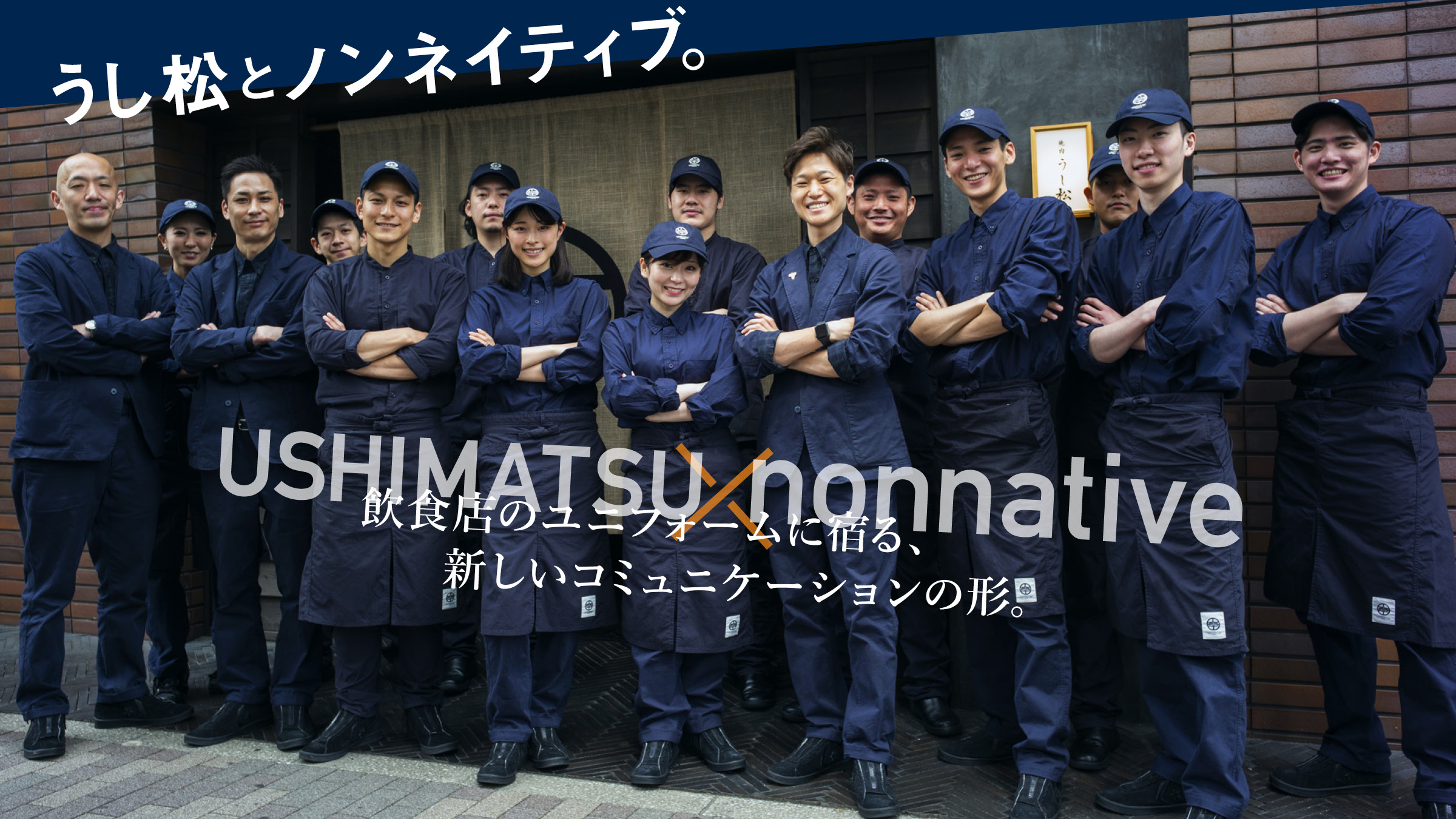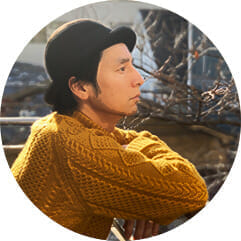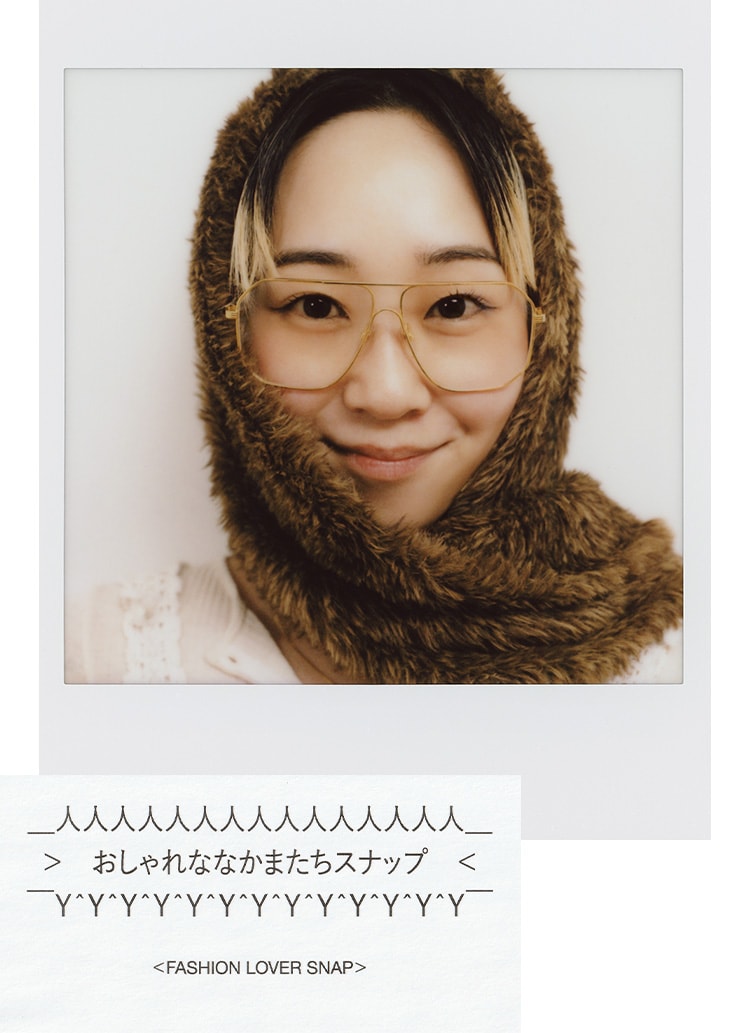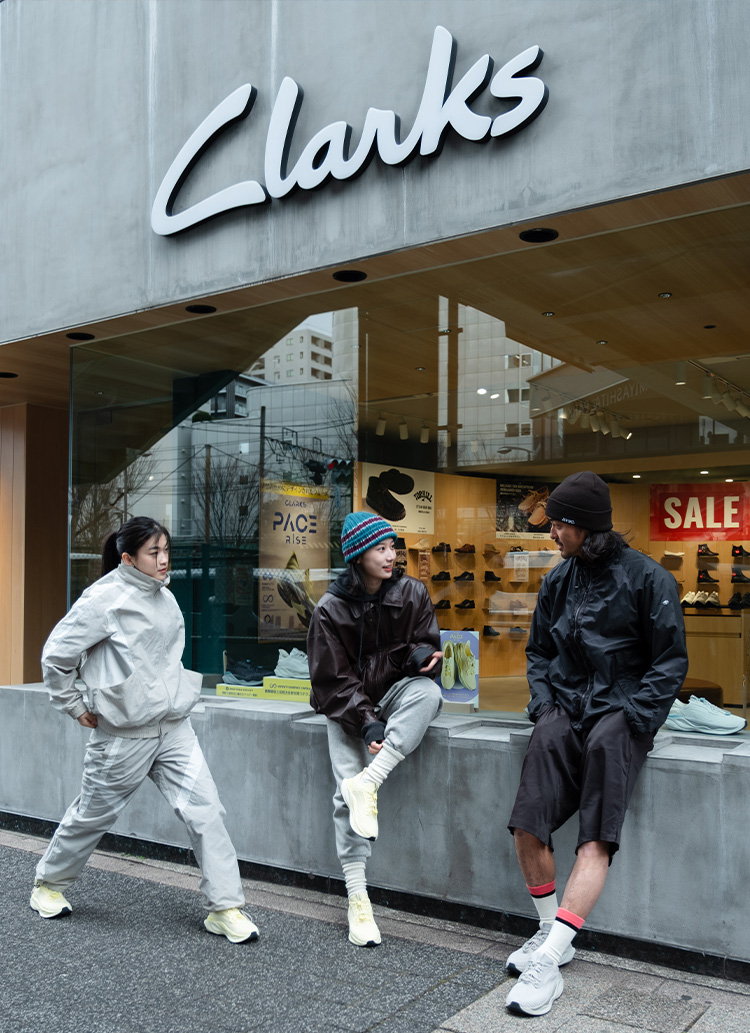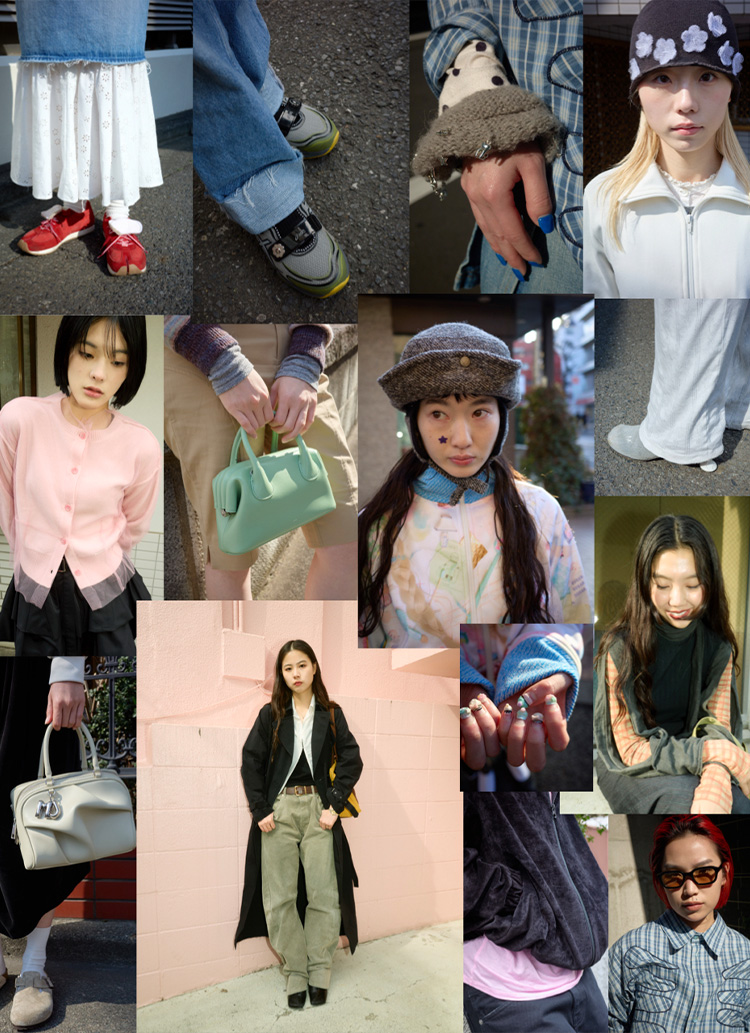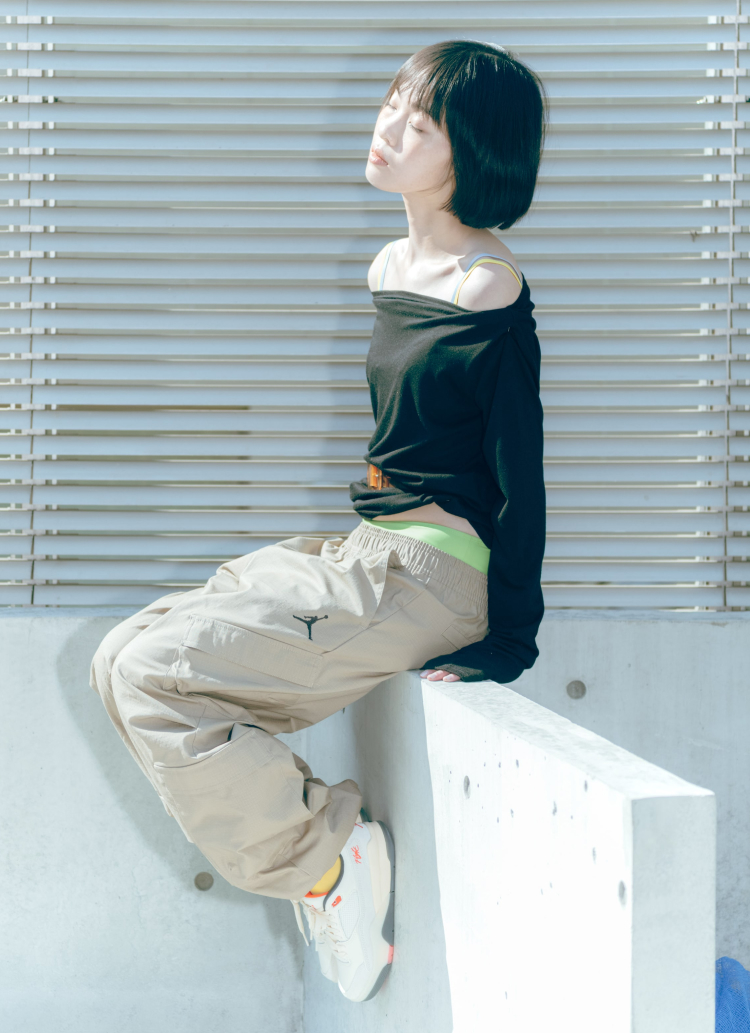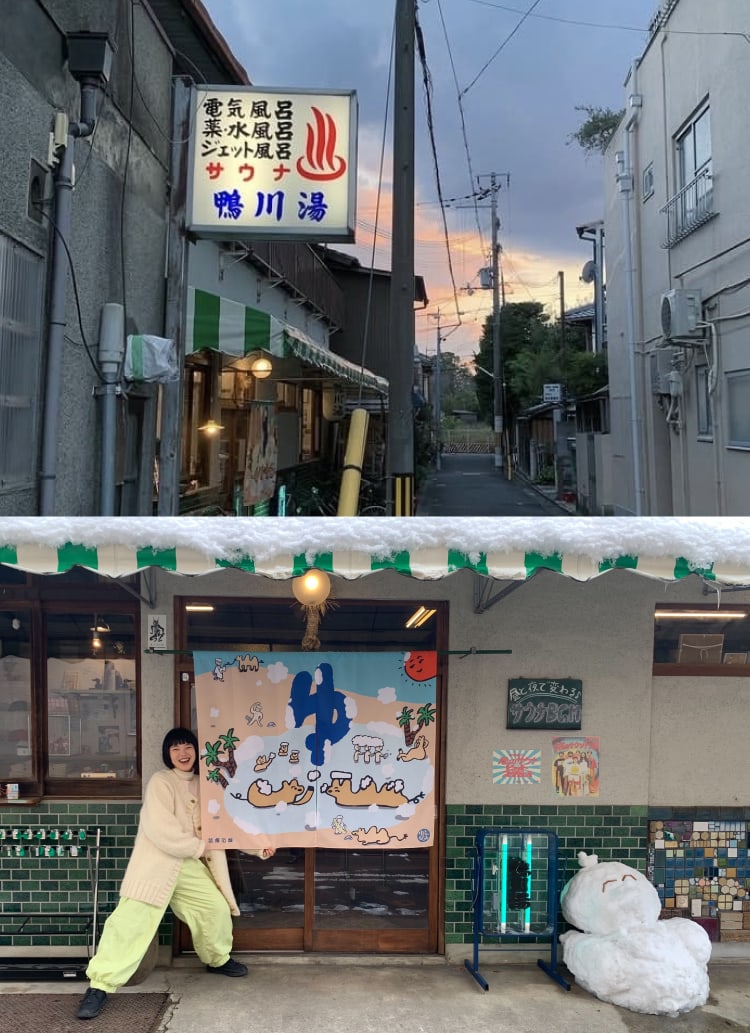From fashion to the world of barbecue .
I understand that you two have been friends for a long time.
Fujii: We have been friends since I was about a freshman in college. I was working at "BEAMS" at the time, and I was the first customer who came to the store after seeing a piece that was interviewed and published in a magazine at the time.
Kurita: Yes, it is.
Fujii: That's when I started playing. That was in 1998, so it was a long time ago.
Kurita: . I am one year younger than him, but we are almost the same age.Ushimatsu opened last January 10.. so it has been more than a year now.
A. Could you tell us again how you came to pursue a career in yakiniku?
Kurita: Originally, my own grandparents were cattle ranchers on Awaji Island .

Mr. Takayuki Fujii, designer of "Non-Native" .
Fujii: I see. I had no idea.
Kurita: We had a breeding farm for Kobe and Tajima cows, so from the time I was a little girl, I went there to help out every time I had a day off. I would get up early in the morning, go to the farm, feed the cows, clean them, and play with them. . So I knew that one day I wanted to do something related to Wagyu cattle.
. So that's how you got your roots.

In the foreground is Yuichi Kurita , director of Ushimatsu. . In the back is the executive chef, Tatsuro Hirakubo.
Kurita: Incidentally, Hirakubo, who is also present at today's interview, has a history of training at a famous yakiniku restaurant. However, I first entered the yakiniku industry when I was over 40 years old, and in order to create a route to purchase meat for the restaurant and to become a connoisseur of beef, I took my resume to a wholesaler with whom I still have a relationship today. I hadn't done that since I brought my resume for a part-time job at "BEAMS" when I was a teenager a long time ago (laughs).
Fujii: . Yes, since Mr. Kurita also worked at "Beams".
Kurita: Naturally, at first, I was a bit surprised at my background, but after a year or so, I was selflessly trained. But I was selflessly training for about a year. Every morning I would take the first train to the Tokyo Meat Market and watch the auction in the morning. In the afternoon, I experienced the site where the cattle I bought were dismembered. After that, I had a mentor whom I met while deciding to make meat my profession, and I went out to eat meat with him every day.
Every day?
Kurita: Yes . My mentor was a man who ate meat more than 300 days a year. I went with him and visited meat restaurants all over the country.
Did you hear about the progress of the project?

Fujii: When I heard that I was going to do barbecue, I thought it would be a good idea. However, I didn't play at all during the year I was in training. I probably would have changed my lifestyle and so on.
Kurita: I really didn't meet anyone at that time. I was determined not to meet. I was betting on the meat. I think it is the same for sushi restaurants, but yakiniku restaurants buy meat from middlemen. So, if you make a contract with such a supplier, you can get a certain amount of what you need. However, at "Ushimatsu," we decided that a certain amount was not enough, so I had to accumulate proper knowledge and cultivate my own eyes. . Then there is communication. When you start a restaurant, it is not as if you can just pay money and get good meat wholesale. It is not like that. You have to have a relationship of trust with the wholesalers and producers.

The restaurant's specialty, "Binding Tongue".
That's true. . In fashion, I think it is similar to the relationship with factories and craftsmen.
Kurita: It is said that there are about 20,000 yakiniku restaurants in Japan . Among them, there is a middleman who is considered to be one of the most prestigious. First of all, you have to be able to establish a relationship with them. In addition, there are brands and grades of wagyu beef, and we wanted to get what we thought was the best among them, so the first thing we had to do was learn. Especially since I was a newcomer to the meat industry, it was necessary for them to understand my enthusiasm and attitude.

. Please tell us about your background as well.
Hirakubo: I used to like meat very much myself, but when I first met Yuichi (Kurita), I really felt the same way about his desire to become the best yakiniku restaurant in Japan. So, I started my training from scratch at an outside restaurant. I also accompanied him on the food tours he mentioned earlier.
What have your days been like since the opening of "Ushimatsu"?
Hirakubo: . The quality of the meat was great from the beginning, but we had to make some improvements in our operations. The quality of the meat was excellent from the beginning, but we had to make various improvements in our operations. We have been making little updates every day.
Hirakubo-san, what is your position in the store?
Kurita: I will be the executive chef. It is the sign of the restaurant!
So you are in the kitchen.
Kurita: Of course I'm in the kitchen, but once business starts, I'm in direct communication with customers and moving around the restaurant.
Hirakubo: . and then there's recipe development and so on.

How old are you now?
Hirakubo: . 32 years old.
Kurita: At his age, this position is one of the youngest in the industry.
The staff at the store is all young, isn't it?
Hirakubo: Yes, most of them are in their 20s. Some staff members are new to working in a yakiniku restaurant, but many of the staff members in the kitchen are experienced, as they really like yakiniku after all.


